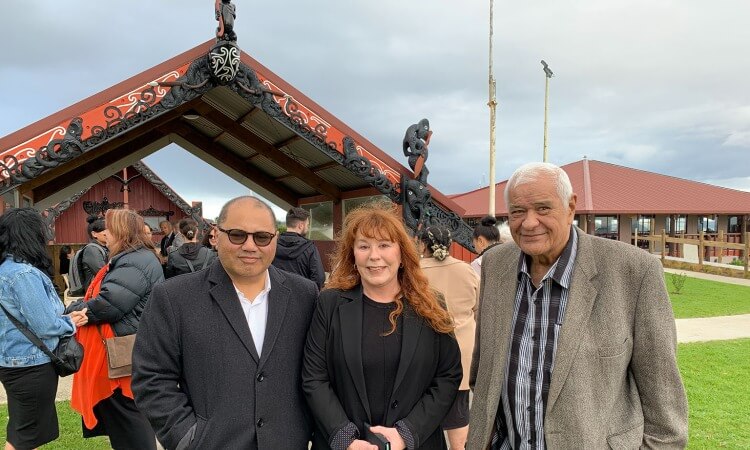Lifewise is on a bi-cultural journey, seeking to embed tikanga Māori into every aspect of the organisation. Our strategic vision is to build a strong bicultural partnership within the organisation, our commitment to Te Tiriti o Waitangi and increasing our understanding of tikanga.
Taking the lead is Lifewise CE, Jo Denvir, who has taken it upon herself to learn and practice te reo and tikanga Māori, using Te Wiki o Te Reo Māori as a catalyst.
“I have lost count of the number of times I have begun the process of trying to develop some command of te reo – I have wanted to learn since I moved back to New Zealand from Australia 10 years ago,” says Jo. However, holding down a full-time job and parenting a young son with kidney disease was where her energy lay. A big driver to start now is that as the new CE of Lifewise, Jo wants to honour te reo Māori and learn to use it, correctly pronounce it and respect it.
“We are special, being the only country in the world that speaks Māori, yet one of the obstacles I had to overcome is the feeling of ‘I should know all this, but I don’t’ – my ignorance has made me apprehensive,” says Jo.
Fortunately, Ken Kerehoma our Pou Manukura has found an amazing te reo and tikanga tutor, Graham Oliver, who is willing to work with Jo as well as those from the Senior Leadership Team and the Board who are interested in learning te reo. This is a long-term commitment and Graham will be working with Jo for at least a year, if not longer to get Jo where she wants to be.
“My goal is to be able to stand up at Ngāti Whātua Ōrākei and speak fluently and with confidence – never again do I want to be so nervous I forget my words,” says Jo reflecting on her powhiri earlier this year.
Why do you think it is important to learn te reo?
“I was born in Marlborough home of the Wairau Bar, which is recognised as the earliest known place of settlement in New Zealand where, around 800 years ago, the first Māori people arrived. Last year in the Marlborough Sounds, the commemoration of the first onshore encounters between Māori and Europeans took place and yet I was not taught te reo at school.
“For me, it is not just about learning to pronounce te reo properly – which is important – but to honour the language and its history. I am also learning tikanga and manaakitanga, which brings meaning, context, and life to the words I am being taught.
“My biggest hope is that if we all learn te reo and tikanga it will help to honour Te Tiriti o Waitangi and Māori and non-Māori will grow stronger together.”
What do you feel is the hardest / easiest part of learning a new language?
“The hardest thing is probably having to speak aloud in public – my tongue finds it difficult to get around some of the sounds and my brain freezes or completely leaves the building.
“Trying to learn te reo as an adult is difficult – managing the feeling of failure that comes when mistakes happen, which is a natural part of learning, but is much harder when you are older.”
Do you have a favourite Māori waiata?
I have two! Poi E and Tūtira Mai Ngā Iwi.
How do you think learning te reo will benefit you as a leader and the organisation as a whole?
“There are benefits for me as an individual, for the organisation as a whole and, ultimately, for Māori health and wellbeing. The more people who can speak te reo and who understand the importance of partnership and tikanga, the greater the chance of improving outcomes for Māori.
“Te reo classes are a perfect fit with Lifewise’s strategic vision of building a strong bicultural partnership within the organisation, our commitment to Te Tiriti o Waitangi and increasing our understanding of tikanga.”
Where do you see room for improvement in the organisation for integrating a stronger bi-cultural presence?
“Definitely at Governance and Leadership team levels. Our employees are much, much better at this than we are and we have a lot to learn from them.
“I think it is really important that at Governance and Leadership level we lead by example and demonstrate and articulate both internally and externally that te reo, tikanga and manaakitanga matter to us and our organisation.”
If like Jo, you too are interested in building your te reo and tikanga Māori, Massey University offers free te reo courses. Register today and take your te reo journey further than Te Wiki o te Reo Māori!


